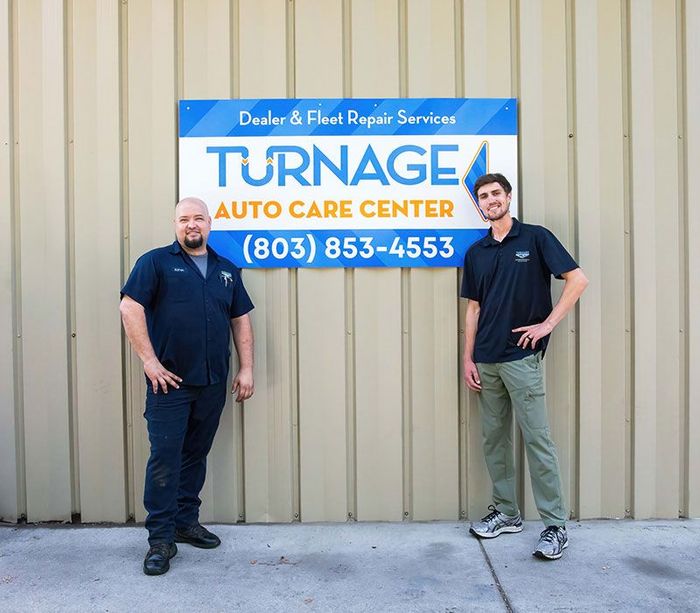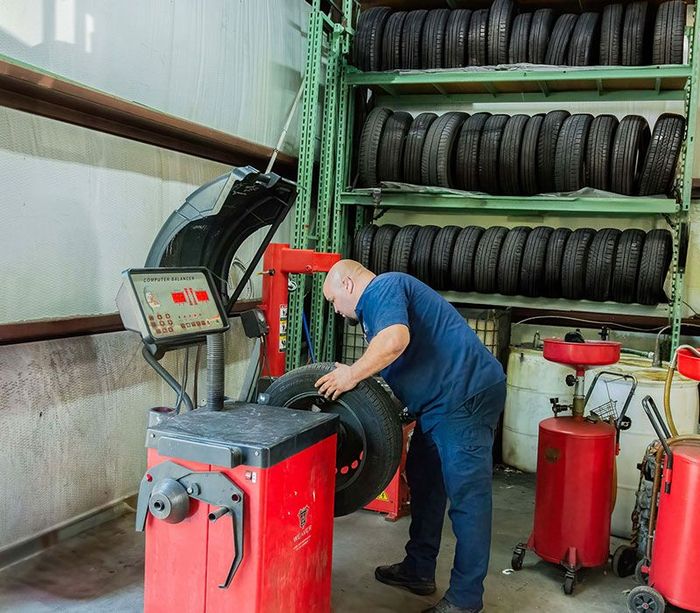Honest and Affordable Auto Repair in Lexington, SC
we service all makes & models, specializing in toyota, lexus, & hybrids
3333+ reviews
Client Testimonials
What People Say About Us
"It is very refreshing to find such a place that will not take advantage of you or your wife. I will certainly be taking any future business to them. I would also note that I was very impressed with the used car dealership as well. Thank you so much for your honesty and professionalism."
by Kirt Phillips
"Every person working here is great. Such a great honest group. They also will offer a service garage to help that's located just down the road from the sales lot. Very fair pricing on the lot and also service department. I won't go anywhere else for me and my family's transportation needs."
by Holly Baucom
"World class service provided by these guys. Very smooth, fast, excellent customer service and repairs. I'd recommend this company to anyone in need of servicing their vehicle. In my opinion arguably the best mechanic repair shop I know. Thank you for all that you are, couldn't be more satisfied."
by Nymphat Fleurissaint
About Turnage Auto Care Center
Trusted Auto Repair in Lexington, SC
In 2011, Turnage Motor Company opened its doors with a mission to sell reliable and affordable cars that customers can feel confident in. Aaron's dedication to this mission quickly resonated with the Lexington, SC community, allowing the business to grow and thrive. By 2013, recognizing the need for trustworthy repair services among their expanding customer base, Aaron expanded the company to include Turnage Auto Care Center, a full-service shop just down the street from the original lot.
Today, Turnage Auto Care Center is proud to offer comprehensive auto repair services for all makes and models, with a specialization in Toyota, Lexus, and most hybrids. Our highly skilled technicians are committed to ensuring your vehicle's safety and reliability, treating each car as if it were their own. We understand the importance of having a dependable vehicle and strive to provide top-notch service to meet all your auto repair needs.
Aaron attributes the success of Turnage Motor Company and Turnage Auto Care Center to God's grace, the dedicated Turnage Team, and the loyal customers who have embraced our mission. Our commitment to honest and reliable service has built a strong bond with the community, and we continue to uphold these values in every aspect of our business.
Although our general hours are Monday through Friday, 7:00 AM to 4 PM, we encourage customers to call or text for an appointment. At Turnage Auto Care Center, we meticulously prepare cars for sale through our repair shop, addressing any safety or reliability issues before they reach our customers. Visit our website or text us any time to learn more about our services and inventory.
Auto Repair Services Lexington, SC
Specialized Vehicle Maintenance and Repair
air conditioning repair
Stay cool and comfortable with expert air conditioning repair. Our technicians ensure your A/C system runs efficiently, keeping you cool all year round.
electrical repair
Ensure your vehicle's electrical systems are functioning flawlessly. Our experts diagnose and repair issues to keep your car running smoothly and safely.
COMPUTER DIAGNOSTICS
Identify and resolve complex vehicle issues with our computer diagnostics. We pinpoint problems accurately, saving you time and money on repairs.
INSPECTIONS
Make an informed decision with our pre-purchase inspections. We assess the vehicle's condition, ensuring you buy with confidence and peace of mind.
Vehicles
Servicing Toyota, Lexus, Hybrids, and More
At Turnage Auto Care Center, we provide comprehensive auto repair services for a wide range of vehicles. Our expert technicians are equipped to handle all makes and models, with specialized expertise in Toyota, Lexus, and most hybrid vehicles.
Whether you drive a compact car, a family SUV, or a high-performance hybrid, we have the skills and knowledge to keep your vehicle running smoothly. We pride ourselves on delivering top-quality service that ensures your vehicle’s safety and reliability, giving you peace of mind on the road.
The Turnage Auto Care Center Benefits
What Sets Us Apart
01
Expert Hybrid Vehicle Repairs
02
Comprehensive Fleet Services
03
Thorough Vehicle Inspections
04
Skilled Technicians for All Models
Auto Repair Shop Near Me
Proudly Providing Car Repair and Maintenance to the Residents of Lexington, SC and Nearby Areas
Turnage Auto Care Center is conveniently located in the heart of Lexington, SC, making it easy for our customers to access top-quality auto repair services. Our facility is equipped with state-of-the-art tools and staffed by highly skilled technicians who are committed to providing exceptional service. Whether you need routine maintenance or more extensive repairs, you can trust Turnage Auto Care Center to handle all your automotive needs with precision and care.
We proudly serve customers not only from Lexington but also from a wide range of neighboring areas. Our commitment to quality and reliability has made us a trusted choice for auto repair in the region. If you are looking for a dependable auto repair shop, visit us at Turnage Auto Care Center and experience the difference in service and expertise that we offer.
- Columbia, SC
- Irmo, SC
- West Columbia, SC
- Cayce, SC
- Chapin, SC
- Red Bank, SC
- Batesburg-Leesville, SC
- Gilbert, SC
- Gaston, SC
- Swansea, SC
- Pelion, SC
- South Congaree, SC















